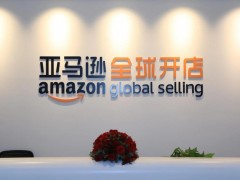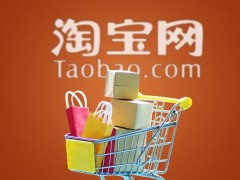What does e-commerce mean?
“电商”一词是业内人士对电子商务的简称,是指通过网络进行商务活动,突破了时间与空间的限制,相对于传统的商务模式有着巨大而明显的优势:消费者群体扩大,成本降低,更高效率等。
电子商务将传统的商务流程电子化、数字化,一方面以电子流代替了实物流,可以大量减少人力、物力,降低了成本;另一方面突破了时间和空间的限制,使得交易活动可以在任何时间、任何地点进行,从而大大提高了效率。
电子商务使企业可以以相近的成本进入全球电子化市场,使得中小企业有可能拥有和大企业一样的信息资源,提高了中小企业的竞争能力。
电子商务ERP把传统ERP中的采购、生产、销售、库存管理等物流及资金流模块与电子商务中的网上采购、网上销售、资金支付等模块整合在一起,以电子及电子技术为手段,以商务为核心,打破国家与地区有形无形的壁垒,让企业从传统的注重内部资源管理利用转向注重外部资源管理利用,从企业内的业务集成转向企业间的业务协同。
Professional answer
The term "e-commerce" is the abbreviation of e-commerce by industry insiders. It refers to business activities conducted through the Internet, breaking through the limitations of time and space. Compared with the traditional business model, it has huge and obvious advantages: expanded consumer groups, reduced costs, higher efficiency, etc.
E-commerce has digitized and digitized traditional business processes. On the one hand, it replaces physical flows with electronic flows, which can greatly reduce manpower and material resources and reduce costs; on the other hand, it breaks through the limitations of time and space, allowing transactions to be conducted at any time and any place, thereby greatly improving efficiency.
E-commerce enables enterprises to enter the global electronic market at similar costs, making it possible for small and medium-sized enterprises to have the same information resources as large enterprises, and improving the competitiveness of small and medium-sized enterprises.
E-commerce ERP integrates the logistics and capital flow modules such as procurement, production, sales, inventory management in traditional ERP with the online procurement, online sales, capital payment and other modules in e-commerce. It uses electronics and electronic technology as means and business as the core to break down the tangible and intangible barriers between countries and regions, allowing enterprises to shift from the traditional focus on internal resource management and utilization to the focus on external resource management and utilization, and from business integration within the enterprise to business collaboration between enterprises.
E-commerce is the full name of electronic commerce. Electronic commerce usually refers to a new business operation model in which buyers and sellers conduct various business activities without meeting each other in the open network environment of the Internet, based on the client/server application mode, in a wide range of commercial trade activities around the world, to achieve online shopping for consumers, online transactions and online electronic payments between merchants, as well as various business activities, transaction activities, financial activities and related comprehensive service activities. Governments, scholars, and business people have given many different definitions based on their own positions and different perspectives and degrees of participation in electronic commerce. Electronic commerce is divided into: ABC, B2B, B2C, C2C, B2M, M2C, B2A (i.e. B2G), C2A (i.e. C2G), O2O, etc.
Similar Q&A
recommend How to use Starbucks Douyin group purchase coupons?
E-c News Continuously pushing e-commerce knowledge to you








Latest Q&A More
-
Do I need a trademark to open a franchise store on Pinduoduo to sell books?
#Pinduoduo#
-
How to withdraw from a Pinduoduo store
#Pinduoduo#
-
How to withdraw from Pinduoduo merchants
#Pinduoduo#
-
How to pay fees when closing a Pinduoduo store
#Pinduoduo#
-
How to withdraw from Pinduoduo
#Pinduoduo#
-
Which store on Pinduoduo is authentic?
#Pinduoduo#
-
Which stores on Pinduoduo can buy genuine products?
#Pinduoduo#
-
How to check the store under Pinduoduo
#Pinduoduo#
-
How to receive Pinduoduo online game products
#Pinduoduo#
-
How to sell the electronic version on Pinduoduo
#Pinduoduo#
E-c News 2025-07-12 23:30:03

- African netizens use China Africa cross-border e-commerce platform for online shopping
- how is the new seller of cross-border e-commerce doing?
- how can cross-border e-commerce Amazon sell on Amazon platform without goods?
- Amazon store opening process and cost analysis!
- Amazon plans to expand its pharmacy business on a large scale and will add same day delivery service

